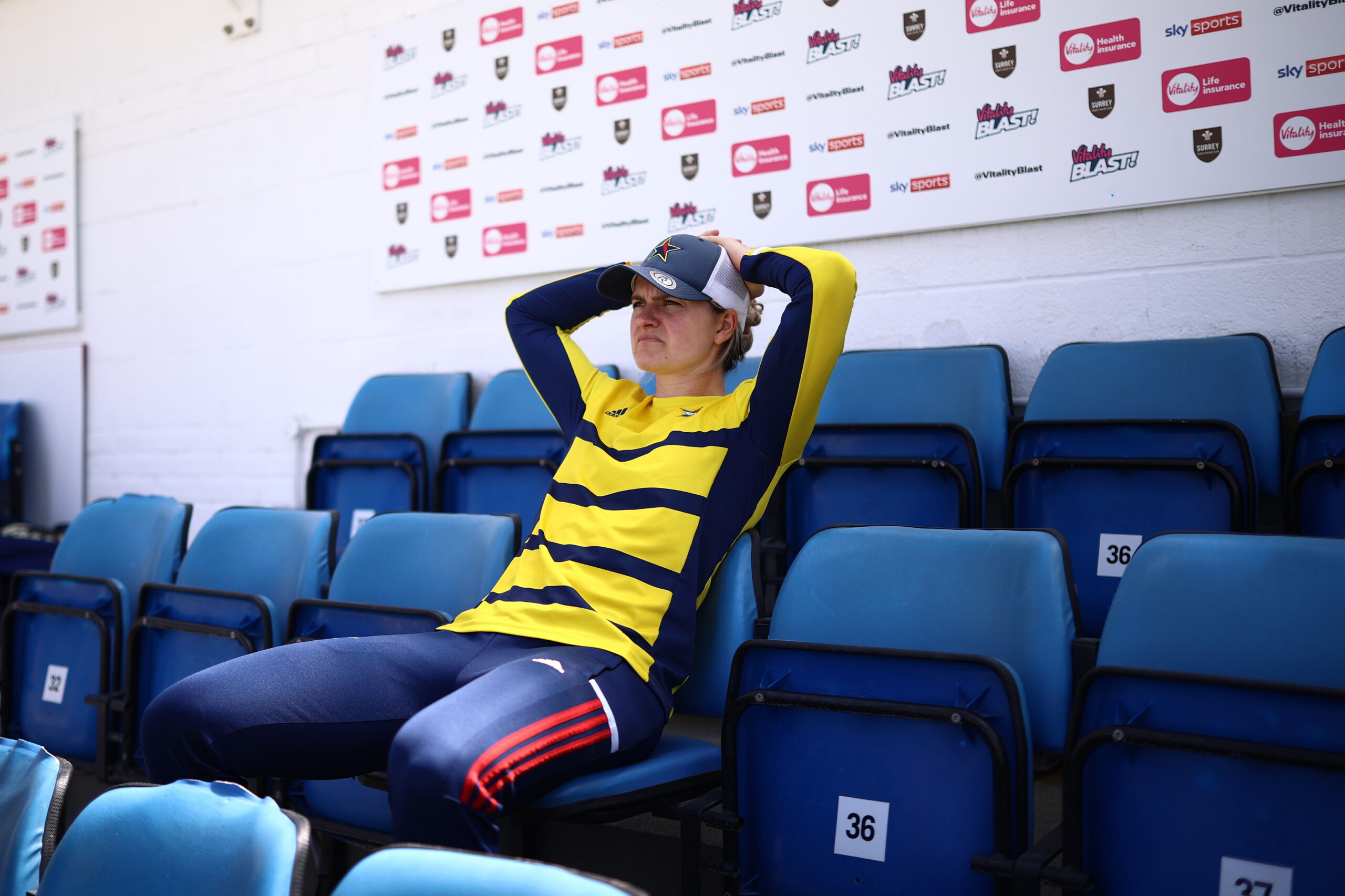Paige Scholfield talks about her love and respect for wildlife, her cricketing journey, and her passions beyond the sport.
Away from the cricket pitch South East Stars and England A all-rounder Scholfield is involved in a heart-felt battle of a very different kind.
The 27-year-old right-hander is enjoying a renaissance after moving from Southern Vipers to Stars last winter, and currently sits second in the Rachael Heyhoe-Flint run-scoring charts with 369 at an average of 52. Yet it seems the game of leather on willow has a rival for her affections, the roots of which can be found in her homeland of South Africa.
Scholfield is proud to be an ambassador of the Ubuntu Wildlife Trust, a charity championing biodiversity in Maputaland, otherwise known as the ‘Elephant Coast’ in the north of Kwa-Zulu-Natal on South Africa’s east coast.
Ubuntu is Zulu for ‘I am because we are’ and seeks to protect endangered species and the habitat in which they live.
“Ubuntu Wildlife Trust are trying to create that environment again where these animals can actually thrive, so getting their populations up,” says Scholfield.
“It’s about helping rangers with poachers because obviously that is a big problem out there, which is frustrating. They do a lot of work to help the wildlife and I am just trying to raise awareness of that here in the UK.
“Growing up in South Africa I’ve always had that love for wildlife. That was my back garden, what I grew up with and what I knew. I just love animals, to be honest. I’ve always been an animal person.
“People here go over and see the nice side of safaris on their holidays, but they don’t actually see what happens behind the scenes.
“For me, coming from there and growing up with it, I want it to be there for when my kids are around, so I really hold that close to my heart.”
When Scholfield swapped the landscape of the Savanna for Sussex aged 12, cricket wasn’t her first sporting passion, or even on her radar. The youngster had seen it on television, but when it came to being sporty, she played football and rugby.
“I’d never held a bat in my life,” she laughs, “football and rugby were my sports. I was the smallest on the pitch when it came to rugby, so played on the wing, always running away from everybody.”
It would be one break-time at Herne School near Crowborough which would lead Scholfield onto a different sporting path.
“I saw a couple of boys playing cricket, so spoke the PE teacher who said to come and have a go,” she continues. “I figured out how to throw a ball quite well, so they liked that.
“We then went to the ASDA Indoor School Festival and luckily for me on that day I got scouted by Bulger Green so went and played for them for a couple of years and then Sussex picked me up. I’ve been there ever since and progressed into the regionals, The Hundred and England A.”
The fact her cricketing journey is rooted entirely on these shores explains why despite the affection for her homeland, should the opportunity for full international honours present itself it would be the Three Lions of England, rather than the Proteas who would have her allegiance.
“If the chance comes in international cricket, it will be England,” confirms Scholfield. “They’ve given me everything. I wouldn’t be where I am today without England. This is my home now and I love it here.”
That said, the pull towards her first love is never far from Schofield’s thoughts and consequently England won’t be home forever, with plans afoot for a life after cricket which would mean getting ‘padded up’ in a very different kit.
“If I wasn’t playing cricket, I would probably train to be a ranger or a vet,” Scholfield adds. “For me, it is my love outside of cricket. It is just as important to me as cricket is.
“You can’t play cricket forever and I probably won’t stay in England once I stop playing. I’ll either go back home or go to New Zealand or Australia and work in wildlife.
“Rhinos are one-of-a-kind animals. They are strong, majestic as well, but unfortunately are one of those that are endangered and declining. It is sad to see it and elephants too poached for their tusks. We can help grow those populations and if there is anything I can help trusts and stuff to do that, then I will.
“I’ll always have part of me that wants to be back in that wildlife.”








